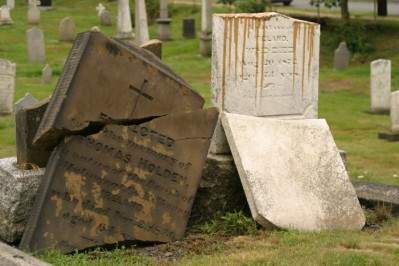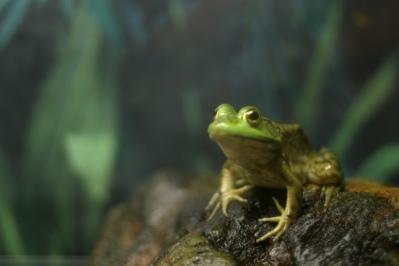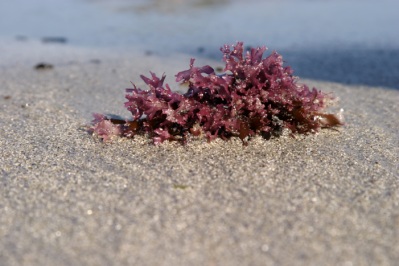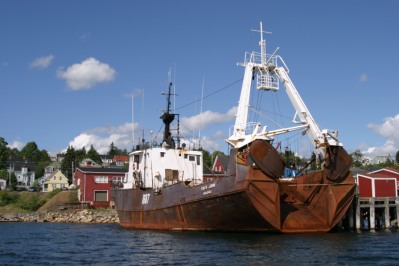Colin's Journal: A place for thoughts about politics, software, and daily life.
October 31st, 2004
Halloween
 Last night we took part in the fifth annual Night of Dread at Dufferin Grove Park. Unlike the previous two years I arrived before the parade had left. This gave me a chance to photograph some of the costumes and puppets while there was still some daylight left. Following the parade was a lot of fun, and I managed to fill up all of my memory cards with pictures before the end of the evening.
Last night we took part in the fifth annual Night of Dread at Dufferin Grove Park. Unlike the previous two years I arrived before the parade had left. This gave me a chance to photograph some of the costumes and puppets while there was still some daylight left. Following the parade was a lot of fun, and I managed to fill up all of my memory cards with pictures before the end of the evening.
Although I took lots of photos I’m only expecting a small number of them to come out. The light levels were so low that auto focus wouldn’t work, and I had great difficulty focusing manually. To give myself the best chance of getting pictures in focus and without camera shake I set the aperture to f8, exposure to 1/180s, and used ISO800 to give the flash a decent range. An external flash would have helped of course, but I think I did OK with the built in one.
As most people reading this will already know, the incoming head of the European Commission asked Parliament to postpone the approval vote, conceding that changes to his team are required. After several days of delay Rocco Buttiglione, the major source of the confrontation, has stood down, giving Italy the chance to put forward a more suitable candidate. There are a few other commissioners that the European Parliament has concern over, and it seems possible that more widespread changes may be made to the lineup.
This is undoubted good news for accountability in the EU, and should hopefully lead to countries in future putting forward multiple candidates for commission posts. This would raise the overall quality of the commission, and diminish the value of the posts as a gift for favoured politicians.
The anti-eu blog EU Referendum dismisses the significance of this outcome:
Nothing much has changed in the legislative or political structure of the European Union. But the MEPs, bless their little hearts, hug themselves with delight whenever there is a sign of their strictly temporary importance. In a month’s time we would have once again forgotten of their existence unless more stories come out of them claiming expenses. Let them enjoy their moments in the sun.
Ironically the site is dedicated to the rejection of the European Constitution. The same Constitution that would significantly enhance the role of parliament, finally ensuring that all future legislation is backed by directly elected politicians as well as conniving state governments. I recently stumbled across the Wikipedia entry on the Constitution. It is the shortest, clearest summary of what changes the European Constitution introduces that I’ve read to date – highly recommended.
October 28th, 2004
New website design
 I’ve uploaded the new “Autumn” design for my website. If you’ve any opinion on this new design please let me know, I’ve been staring at it too long to know whether I still like it. I had envisaged something more complex, but as I got into the design I kept coming across good reasons not to add more elements. This design follows the trend of earlier designs by putting a great deal of value on white-space. Most commercially designed websites have a narrow column of content among lots of design elements – something I may try next time.
I’ve uploaded the new “Autumn” design for my website. If you’ve any opinion on this new design please let me know, I’ve been staring at it too long to know whether I still like it. I had envisaged something more complex, but as I got into the design I kept coming across good reasons not to add more elements. This design follows the trend of earlier designs by putting a great deal of value on white-space. Most commercially designed websites have a narrow column of content among lots of design elements – something I may try next time.
I encountered numerous difficulties implementing this design in such a way that it works in all of the major web browsers (IE, Firefox, Opera and Safari). Issues ranged from known IE CSS bugs (particularly the double margin bug) through to weird box stacking in Safari.
My new design is fairly simple and yet it took three different approaches before I managed to get something that worked across the four browsers that I’m testing. If I had used absolute positioning on everything it would have been fairly easy, but it would have scaled badly for anyone using a large font size. I’ve had to use some CSS hacks (see “The Box Model Problem”) to make the site legible, although not correct, in IE 5.0/5.5.
Only around 3% of visitors to owlfish.com use IE 5.0 and hopefully by the time I create my next design there will be almost no-one using this browser.
October 25th, 2004
Autumn in Toronto
Autumn arrived last week, bringing a final flush of colour to the world prior to the onset of winter. The weather hasn’t played to the season’s strength, with most days being grey with very low cloud and fog. I’ve still got some hope that I’ll be able to capture sunlight streaming through golden leaves before all the trees finish shedding.
 Autumn colours, even in grey dispersed light, can still be impressive, and so on Saturday I went to Trinity Bellwoods Park to take a few pictures. I took a couple that are interesting in their own right, and many more that are suitable for editing into website graphics. Shana reminded me that I had originally intended to create a website theme for each season, and so I’ve embarked on creating an Autumn theme.
Autumn colours, even in grey dispersed light, can still be impressive, and so on Saturday I went to Trinity Bellwoods Park to take a few pictures. I took a couple that are interesting in their own right, and many more that are suitable for editing into website graphics. Shana reminded me that I had originally intended to create a website theme for each season, and so I’ve embarked on creating an Autumn theme.
Autumn colours are warm and friendly, especially in comparison to the rather cool look that I’m currently using, so I think the result will be an improvement. It always takes me longer to finish doing website designs than I anticipate, but I’m currently hoping to roll the new look out within a week.
Today’s picture works best as a full screen image, but hopefully readers will be able to get something from the version I’ve uploaded here. I like this photo particularly because the grey skies, football player, and CN Tower give a great sense of an ordinary dull Toronto day. In contrast the tree’s leaves range from a plain green through to a deep red in a way that seems anything but dull.
October 19th, 2004
Commission hearings
It was widely expected that the European Parliament’s quizzing of the new Commissioners would be nothing more than an paper work exercise. The controversy surrounding the Italian Commissioner Rocco Buttiglione, who has been assigned the Justice Freedom and Security portfolio by the new Commission head José Manuel Durão Barroso, is proving that assumption to be wrong.
Mr Buttiglione is described by the BBC as a devout Roman Catholic and a close friend of the pope. A Commissioner’s religious beliefs do not normally effect their candidature, but in questioning by the European Parliament Mr Buttiglione’s has expressed some very unwelcome ideas. By describing homosexuality as a “sin” and the aim of marriage as being “to allow women to have children and to have the protection of a male” he has called into question his suitability for the position.
 In the summary of Mr Buttiglione’s hearing before the Civil Liberties Committee he attempts to draw a distinction between morality and the law. The problem is the European Commission’s role as the sole initiator of new legislation. The views of individual Commissioners have a huge effect on EU law, and so their moral views are important.
In the summary of Mr Buttiglione’s hearing before the Civil Liberties Committee he attempts to draw a distinction between morality and the law. The problem is the European Commission’s role as the sole initiator of new legislation. The views of individual Commissioners have a huge effect on EU law, and so their moral views are important.
The European Parliament is only allowed to veto the whole Commission rather than individual members. Whether MEPs will be willing to go that far in trying to stop Rocco Buttiglione is uncertain, but it is now a real possibility. The best political solution would be for Rocco Buttiglione to stand-down, something he has indicated he is willing to consider.
The more scrutiny Parliament gives the Commission the better. Often Commissioners are put forward based on their political friendships rather than competency. Parliament is, as it was designed to, helping us all by ensuring that Commissioner’s fundamental views are compatible with the laws they are asked to administer.
October 17th, 2004
How many people read this?
It’s been a while since I’ve taken my camera out and done any photography, and that’s part of the reason why I’ve not updated this web journal over the last two weeks. The other reason for lack of updates is that I’ve been refining the software that tries to answer the question asked above: How many people are reading this?
Every time a web server receives a request for a URL from a client (web browser, search engine, RSS Aggregator, etc) it logs the event into a file. By analysing the web server log file it’s possible to approximate how many people loaded a particular web page, which hopefully gives an indication of how many people read it.
 Determining the number of people, versus the number of search engines or other robots, requesting your web page is very difficult. Each log file entry contains the user agent string sent by the client making the request. Most web browsers provide their own distinct user agent string, enabling you to determine whether the request was made by Firefox, IE, Safari or some other web browser. Unfortunately IE’s user agent string includes extensions, e.g. “Mozilla/4.0 (compatible; MSIE 6.0; Windows NT 5.2; .NET CLR 1.1.4322)” means IE 6.0 with the .NET framework installed. The range of possible user agents for IE is huge, and so pattern matching is the only practical way to determine whether or not a request came from IE.
Determining the number of people, versus the number of search engines or other robots, requesting your web page is very difficult. Each log file entry contains the user agent string sent by the client making the request. Most web browsers provide their own distinct user agent string, enabling you to determine whether the request was made by Firefox, IE, Safari or some other web browser. Unfortunately IE’s user agent string includes extensions, e.g. “Mozilla/4.0 (compatible; MSIE 6.0; Windows NT 5.2; .NET CLR 1.1.4322)” means IE 6.0 with the .NET framework installed. The range of possible user agents for IE is huge, and so pattern matching is the only practical way to determine whether or not a request came from IE.
Good search engines (such as Google which uses “Googlebot/2.1 (+http://www.google.com/bot.html)”) provide a user-agent that looks nothing like IE’s user-agent, and so is very easy to tell apart. Other’s such as the “Grifabot” deliberately use user-agents that are easy to confuse with IE, such as “Mozilla/4.0 (compatible; MSIE 5.0; Windows NT; Girafabot; girafabot at girafa dot com; http://www.girafa.com)”.
Even if the user-agent does match a known web browser this doesn’t necessarily mean that it really was that web browser that sent the request – a user can change their browser’s user agent to be anything they like. The only saving grace here is that the vast majority of users don’t bother as there isn’t really any point to changing it.
Having decided which requests are legitimately from a web browser rather than a robot the next challenge is to determine what counts as a unique page visit. If I reload the web page within 5 minutes, it will generate two requests for the page and two entries in the log file. I probably want to count such reloads as a single page visit, up to a cut off point (say 2 hours).
Detecting whether the same client has re-requested the page is fairly easy because the IP address is included in the information logged by the web server, and is unlikely to change between requests. Writing software that counts unique requests in a scalable manner is a challenge, because each request within the last 2 hours for every URL has to be remembered.
—
Photo: Seaweed on the beach at Kejimkujik Sea Adjunct, Nova Scotia.
October 5th, 2004
Turkey
Many of the EU15 member states are struggling to come to terms with the possible accession of Turkey. Even supporters of Turkish membership, such as France, seem intent on making it difficult.
The European Commission’s new stance that negotiations with candidate countries will be suspended if those countries fail to meet membership criteria is to be welcomed. The 100% success rate of countries negotiating membership during the recent expansion could easily be interpreted as meaning that there is little chance of rejection. By explaining the consequences of failing to meet membership criteria the commission increases the impetus for countries to reform. Hopefully this new approach will be applied as equally to Turkey as it is to Romania, Bulgaria and Croatia.
 The new enlargement commissioner, Olli Rehn, is reported as wanting to introduce a permanent mechanism to limit the free flow of workers from Turkey to other EU states. This is a badly thought out proposal that has been rightly shot down by Turkey. A permanent mechanism to limit movement between Turkey and the rest of the EU would distort the single market and devalue membership of the EU significantly.
The new enlargement commissioner, Olli Rehn, is reported as wanting to introduce a permanent mechanism to limit the free flow of workers from Turkey to other EU states. This is a badly thought out proposal that has been rightly shot down by Turkey. A permanent mechanism to limit movement between Turkey and the rest of the EU would distort the single market and devalue membership of the EU significantly.
Being an EU citizen grants you the right to move freely between member states. If countries gained the right to limit immigration from other member states it would damage the single market. Currently British citizens can be sure that their rights will be respected when buying a house or starting a business in France. If member states can arbitrarily restrict immigration then that certainty is removed, and people are far less likely to make investments abroad.
(The picture is of a rusty trawler docked at Lunenburg)
Software
The full list of my published Software
Email: colin at owlfish.com
